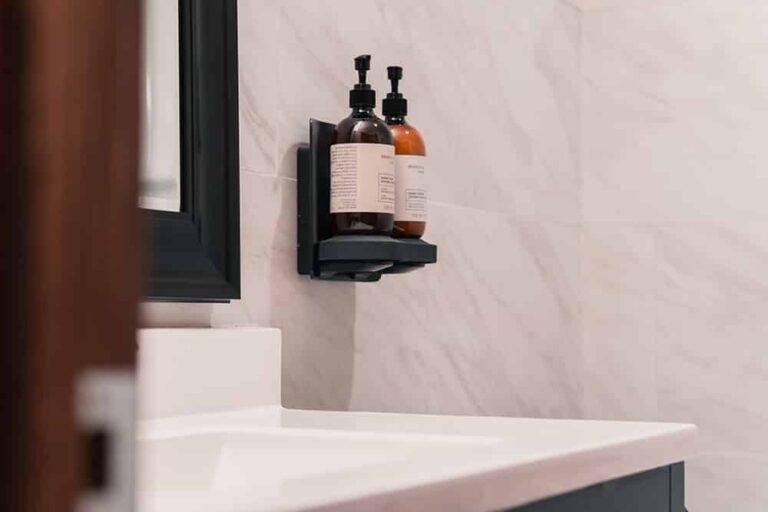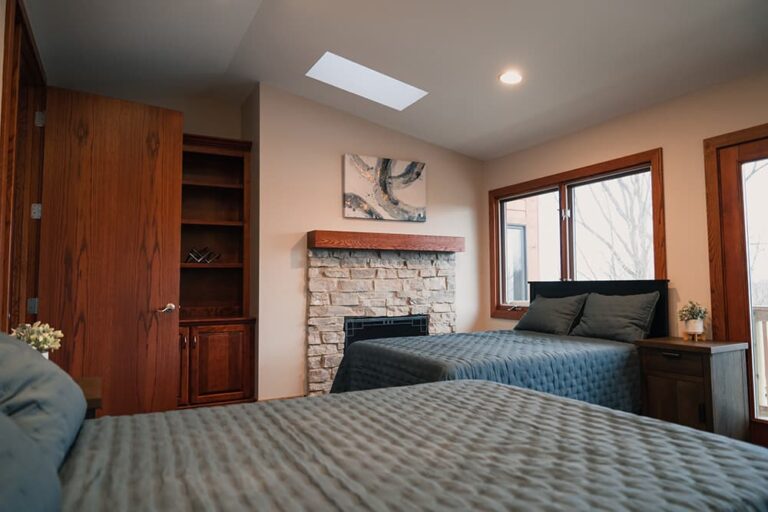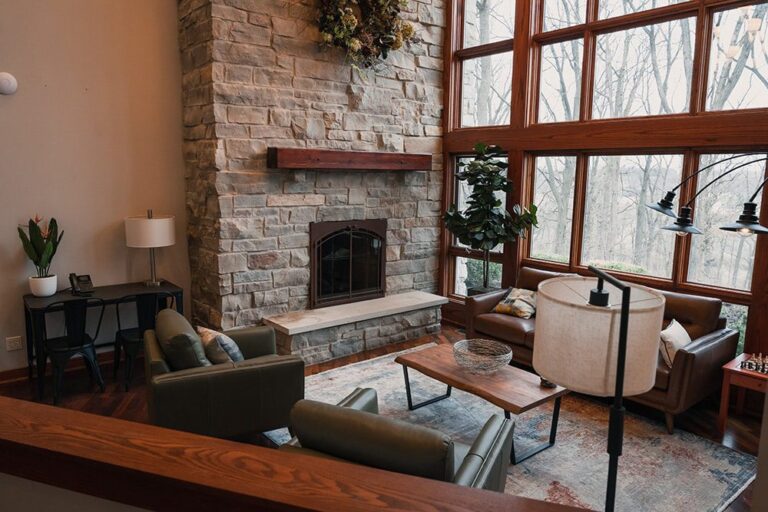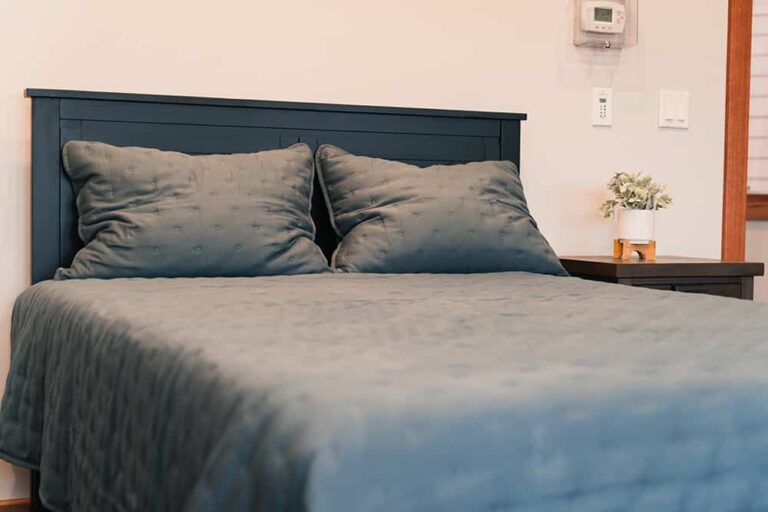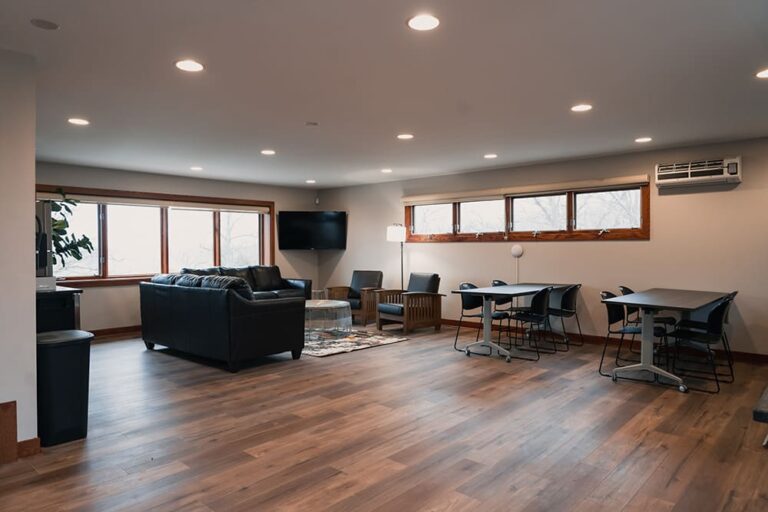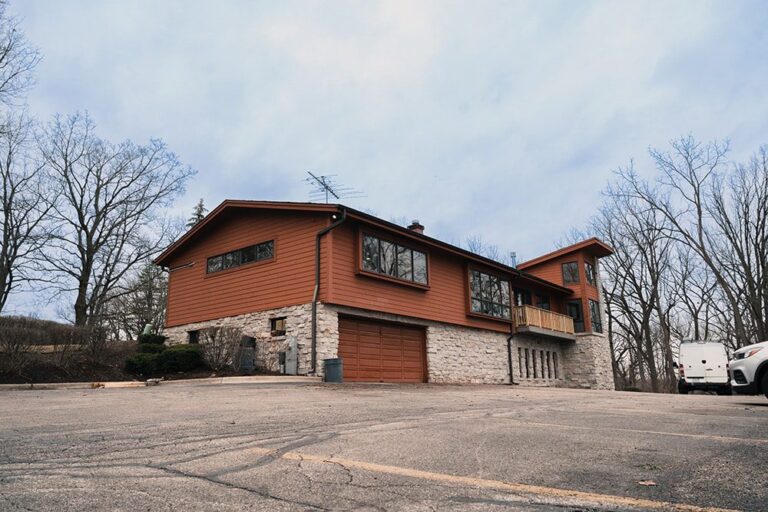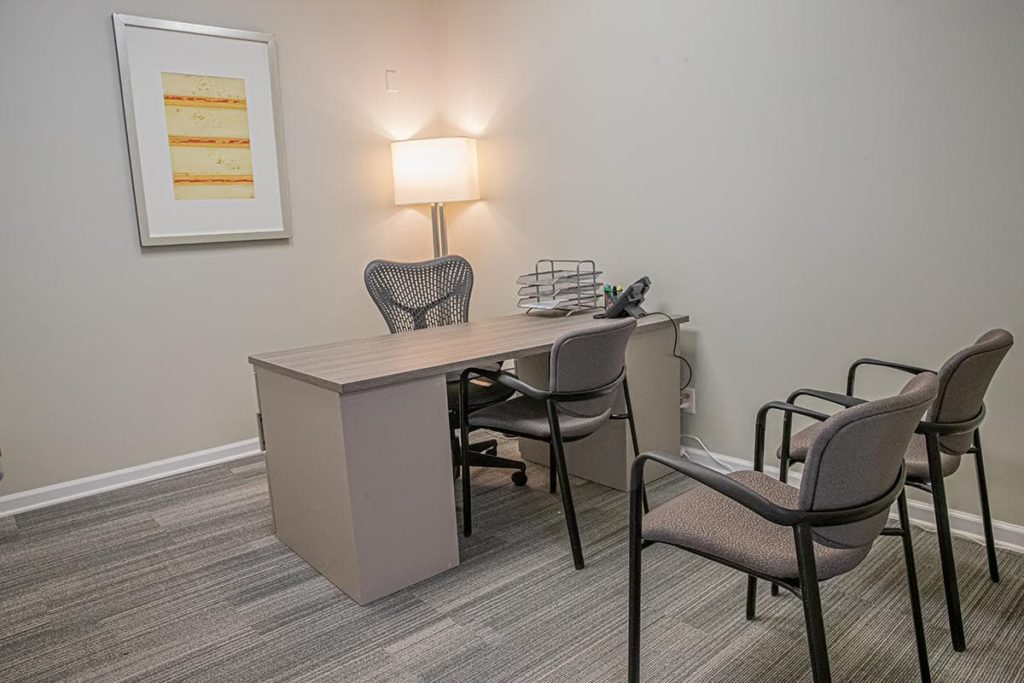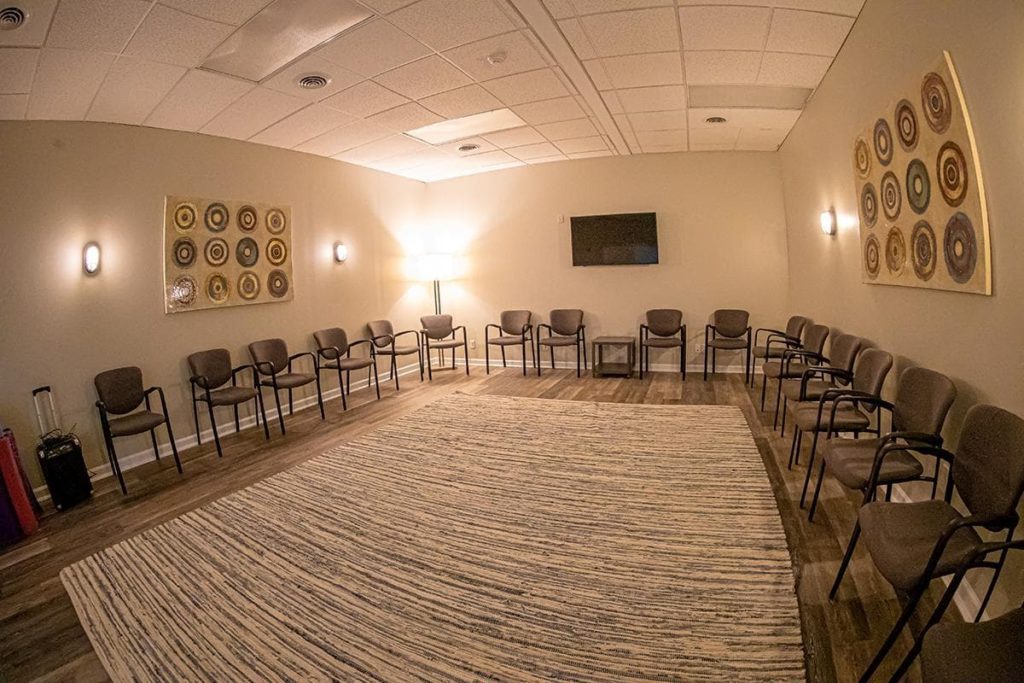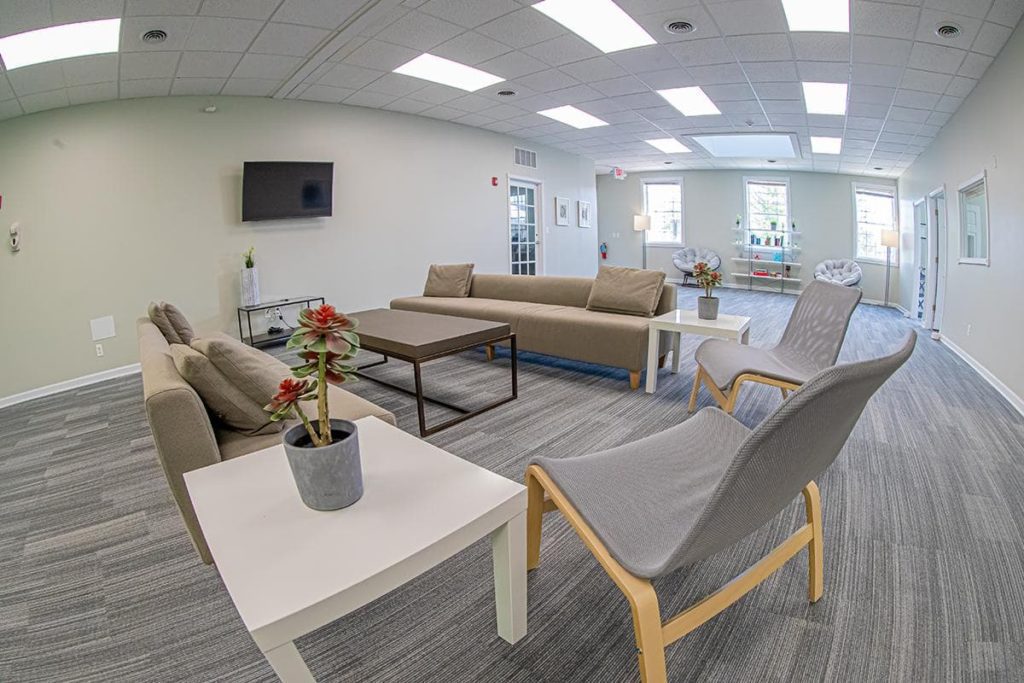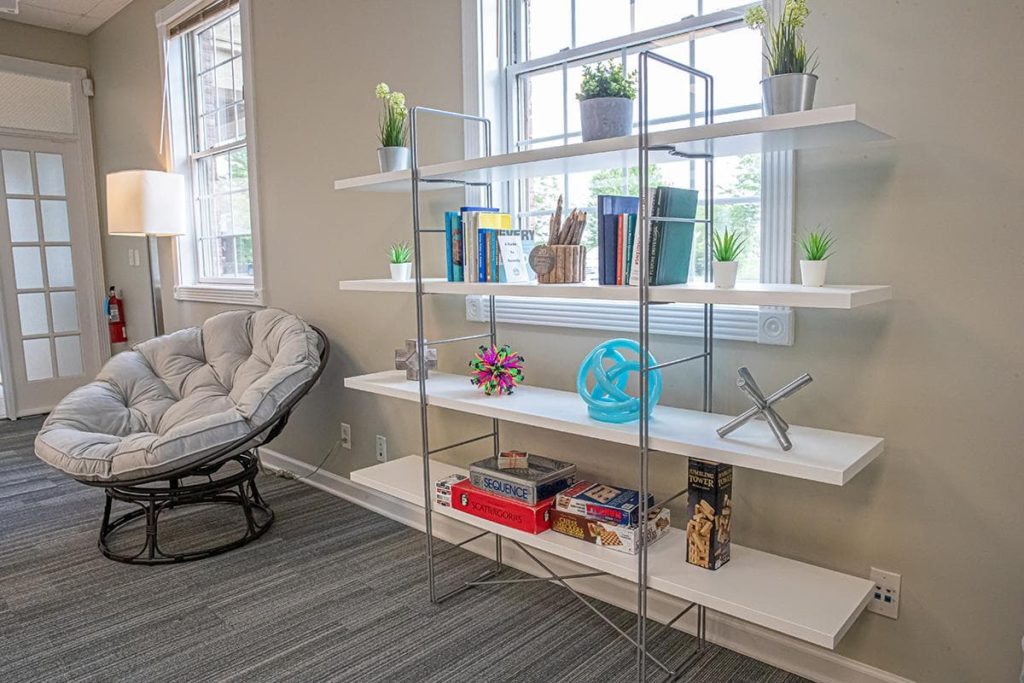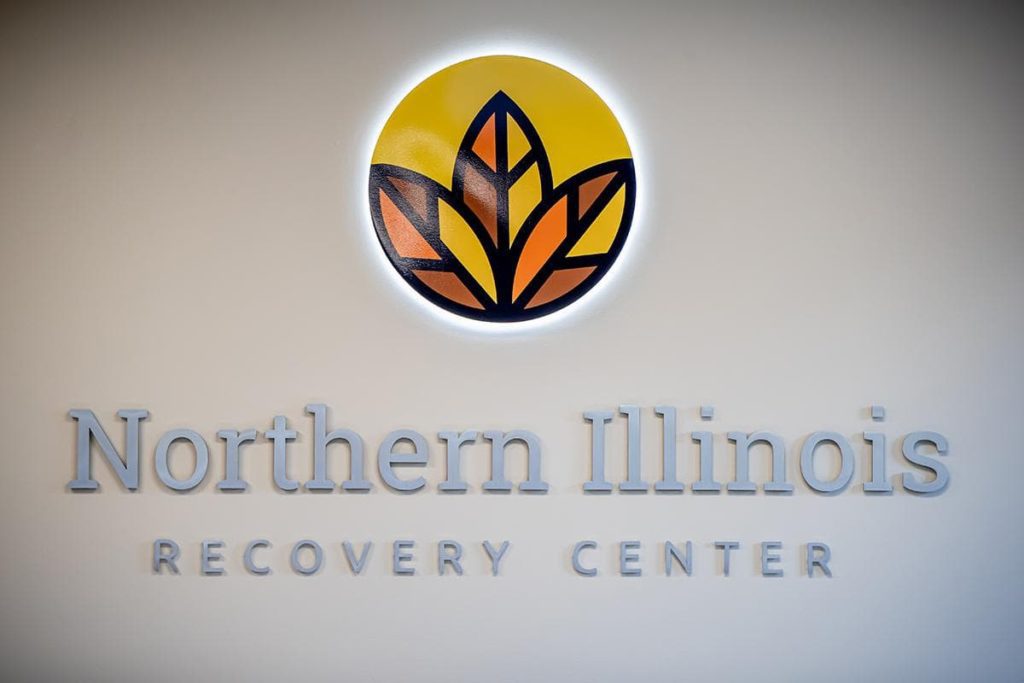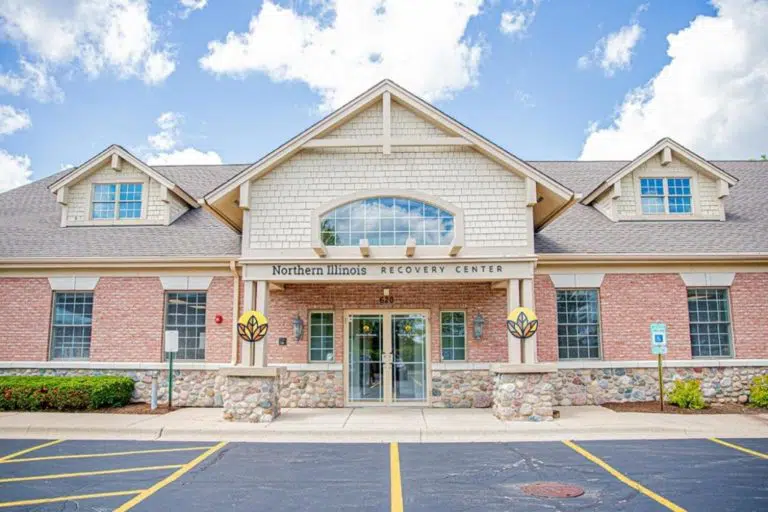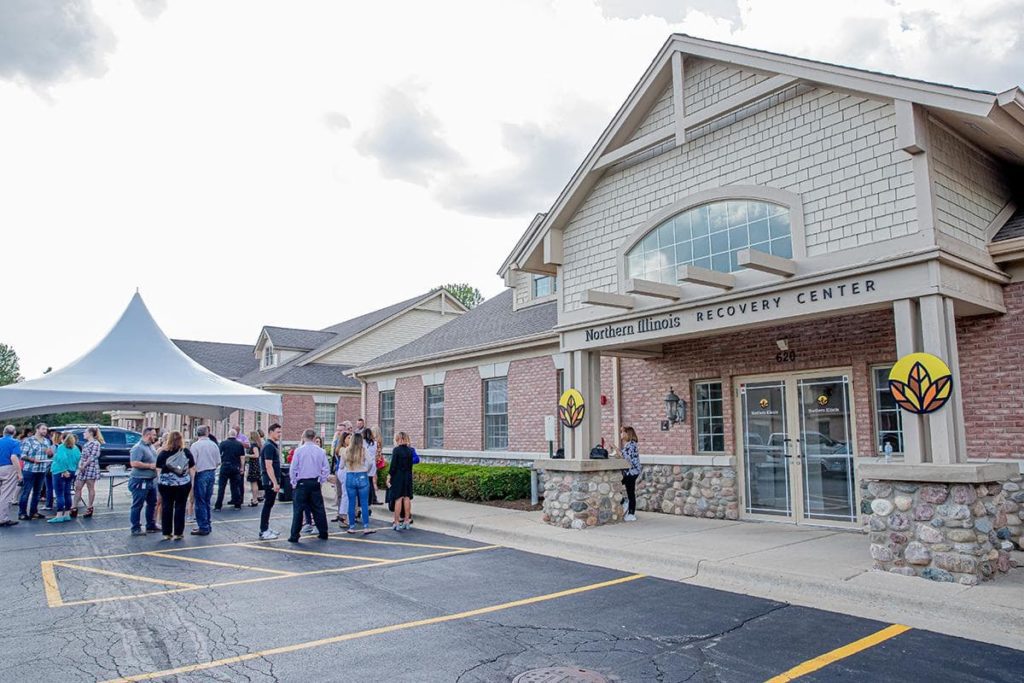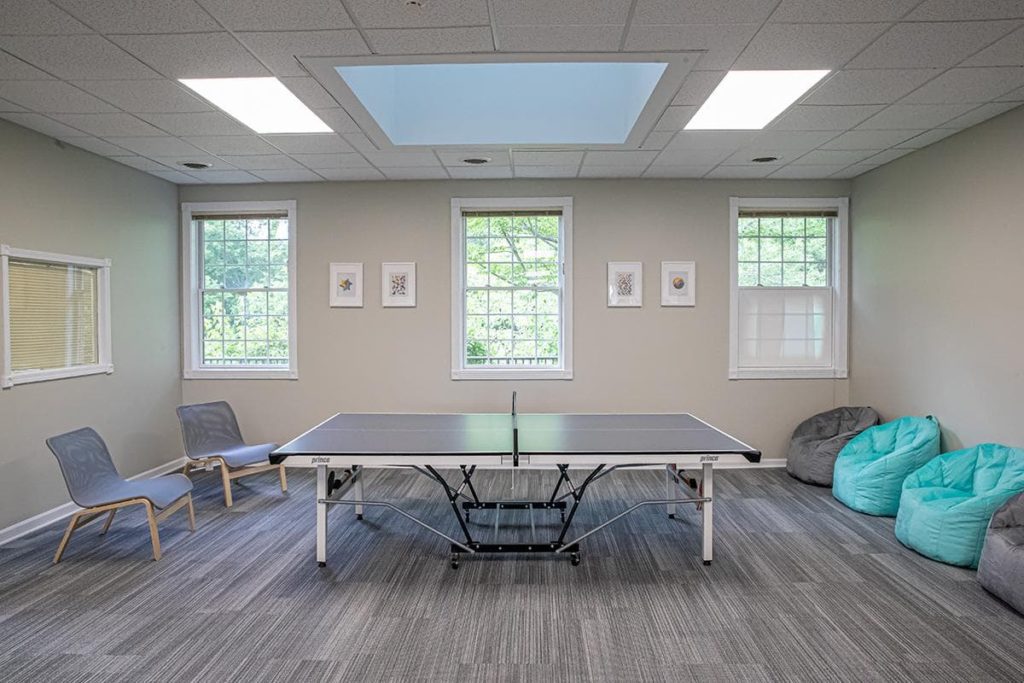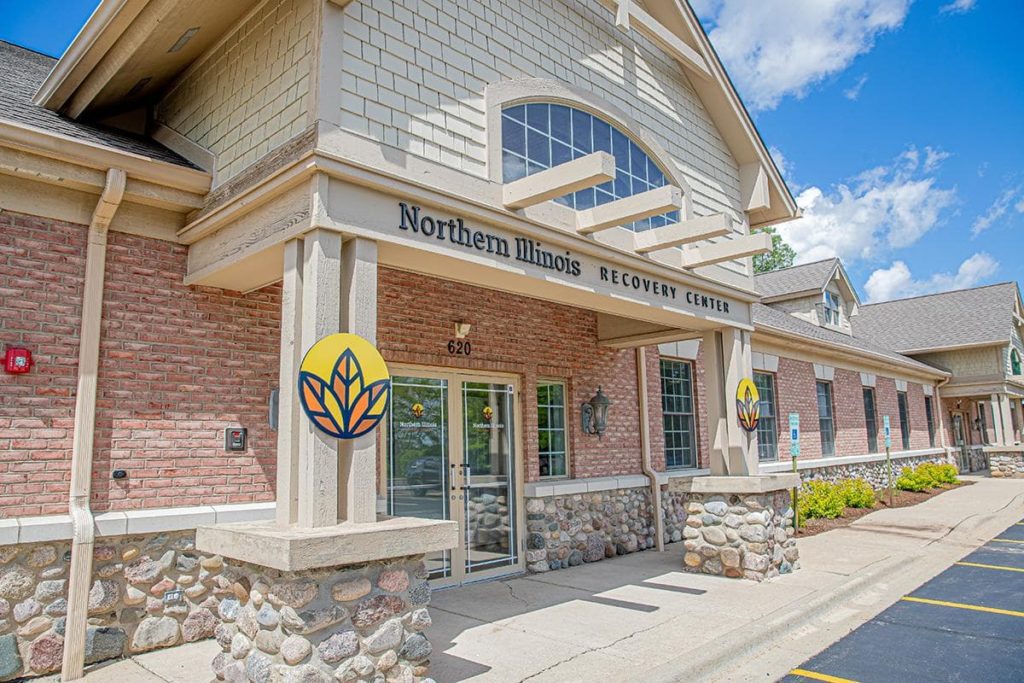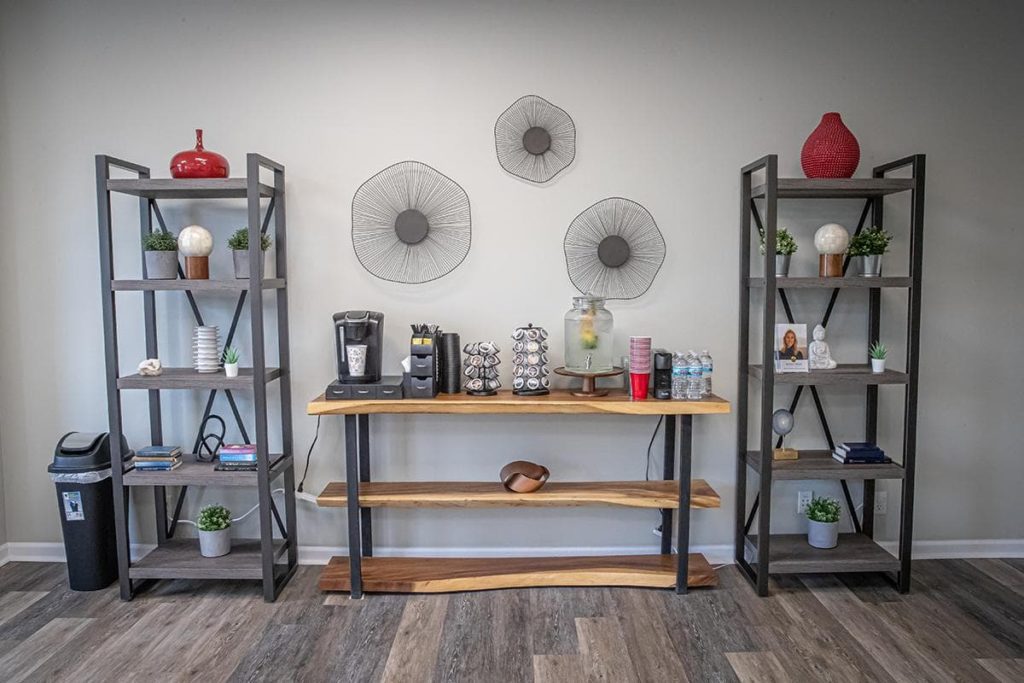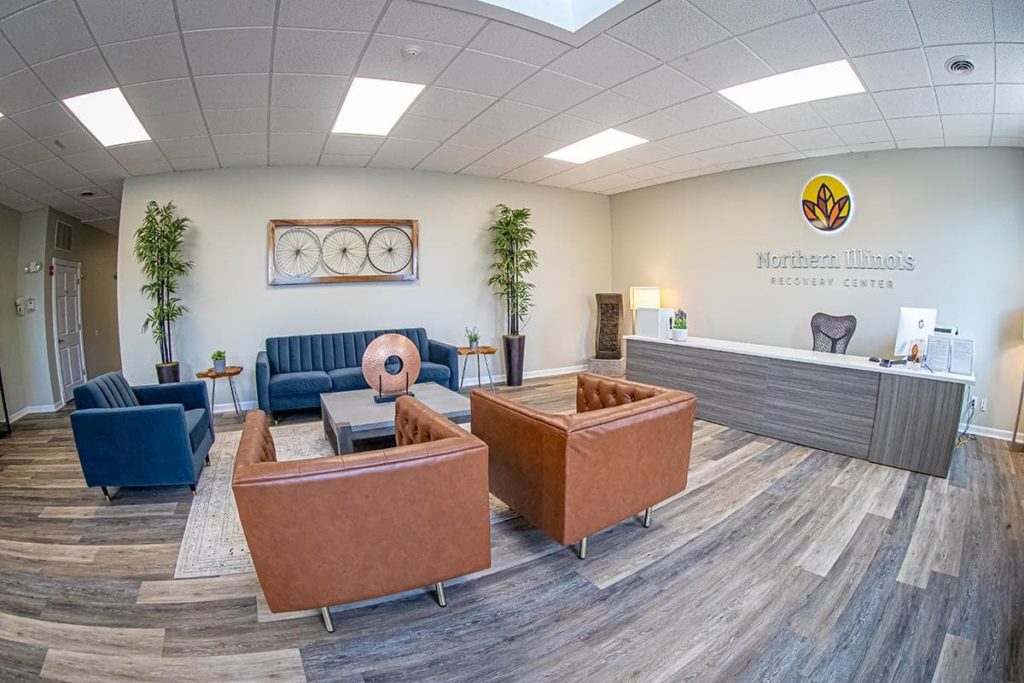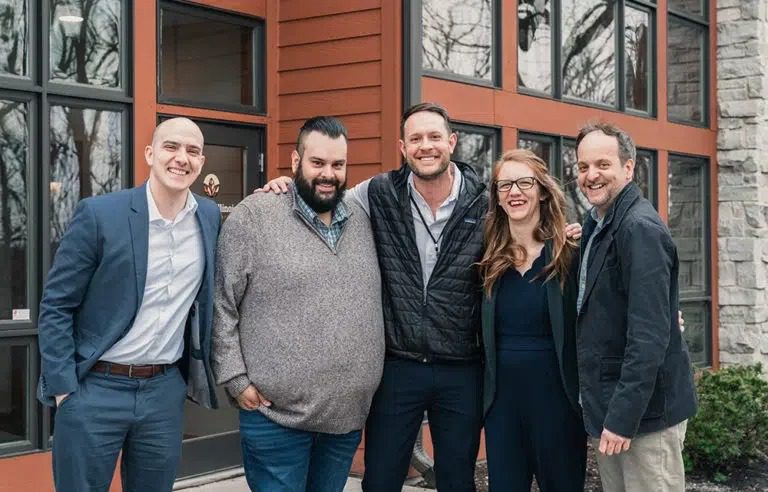

What is Residential Treatment?
The Process of Entering Inpatient Rehab
Here at Northern Illinois Recovery Center, we pride ourselves on providing a peaceful and supportive environment during the recovery process. During your initial arrival, you will discuss any current medical conditions, your substance use history, and whether you’ve attended treatment previously. You’ll be provided a room and a schedule of therapies and other activities to promote a successful recovery. Each person receives an individualized treatment plan to support this initiative.
Are You a Candidate for Residential Treatment?
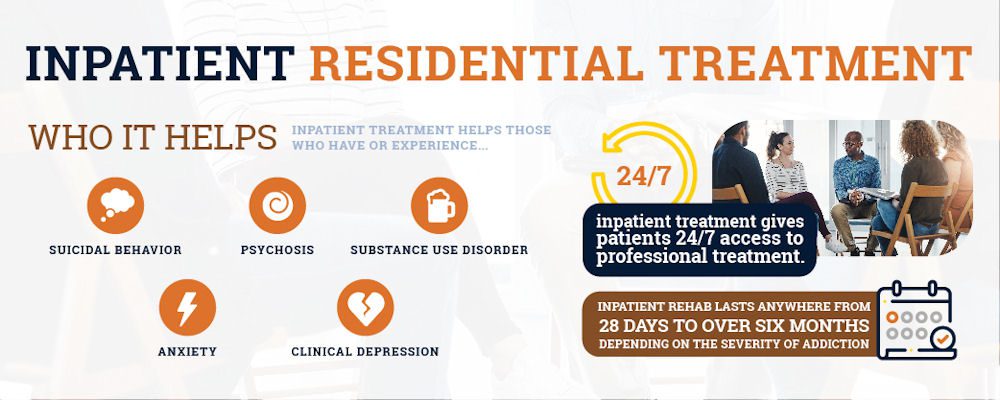
A person’s experience in residential treatment will vary for each individual and their specific needs and circumstances. The decision to seek inpatient treatment for a substance use disorder does not come easily. At Northern Illinois Recovery Center, we understand the challenges men and women face with addiction and mental illness. When a challenge arises, such as this, we strive to provide people and their loved ones with behavioral health care resources and access to high-quality care. Individuals will be able to live healthier and more fulfilling lives while learning how to cope with their conditions and manage them effectively.
What to Expect During Residential Treatment
Unlike other treatment centers, we recognize that a cookie-cutter approach is not an effective method of treating alcohol and drug addiction. During inpatient rehab, our team members design a recovery journey tailored to clients’ challenges and strengths. Every client has their own goals surrounding addiction services, whether they want to learn how to repair and maintain healthy relationships with friends and family, or how to manage mental health issues. We strive to understand each client’s goals so that we ensure that they receive customized treatment plans.
Therefore, during their stay at our inpatient facility, most clients participate in a variety of treatment options and holistic behavioral health options.

VP of Clinical Services
At NIRC, we offer a seamless continuum of care. Therefore, whether you are dealing with drug or alcohol addiction – we provide catered services. Our inpatient drug rehab consists of therapies and programs that provide consistent success within our clients in regards to long term recovery.
At NIRC, we take pride in our ability to find a unique path to recovery for all of our clients. When it comes to our inpatient alcohol program, we have found treatment modalities that put our clients in the best position for their recovery.
Following a successful alcohol detox, our clinical director and other medical professionals help each client determine the best fit for them within our continuum of care at our alcohol rehab facility.
Our Evidence-Based Residential Treatment Approach
- Cognitive behavioral therapy
- Dialectical behavior therapy
- Individual Counseling
- Group therapy
- Family therapy
- Yoga therapy
- Art therapy
- Medication-assisted treatment (therapy)
- Commitment therapy
- Recreational therapy
- Music therapy
- Mental health services
- Support groups
At NIRC, we treat a variety of substance abuse disorders. Our inpatient drug rehab consists of therapies and programs that provide consistent success for our clients. During our program, we address the root cause of clients’ addiction while treating the symptoms it’s causing. Because symptoms of drug abuse can vary based on the substance, we take a comprehensive patient history to inform our care.
At NIRC, we take pride in our ability to find a unique path to recovery for all of our clients. When it comes to our inpatient alcohol program, we have found treatment modalities that put our clients in the best position for their recovery. Following a successful alcohol detox, our clinical director and other medical professionals help each client determine the best fit for them within our continuum of care through our alcohol rehab program.
In some scenarios, additional care might be needed for an individual struggling with more serious addiction and mental health circumstances. When an individual is struggling with both their mental health and substance abuse disorder at the same time, dual diagnosis treatment is necessary. In this type of program, we tailor a patient’s care plan to address both conditions simultaneously, providing more comprehensive care.
Testimonials
How Long Does Inpatient Rehab Last in Illinois?
 This program is a superb way to jumpstart recovery from substance misuse. You might not be super clear on how long to stay in residential care, so this program will be better able to provide insight and lay a foundation. It will give you substantial time to overcome any physical side effects of drug withdrawal and allow time to begin creating and establishing relapse prevention methods.
This program is a superb way to jumpstart recovery from substance misuse. You might not be super clear on how long to stay in residential care, so this program will be better able to provide insight and lay a foundation. It will give you substantial time to overcome any physical side effects of drug withdrawal and allow time to begin creating and establishing relapse prevention methods.
The 30-Day Program allows the individual struggling with substance use disorders and mental health issues to fully define a course of aftercare treatment going forward. It’s the easiest part of inpatient care to commit to because it’s the shortest period of time. Typically, this program will be offered at the lowest cost, so many private health insurance programs will cover expenses.
This residential program in Illinois provides the benefit of allocated time and support throughout the entire treatment process. In this program, there will be time to focus on recovery and therapy sessions will be provided to understand what (like a mental health condition) could have contributed to any habit-forming behavior.
A 60-day program will grant you more adequate time to fully recover from drugs and alcohol addiction, and begin to practice positive and healthy habits actively to help an individual maintain sobriety. Though not all insurance plans might not cover the 60-day programs, many inpatient facilities in Illinois will allow smaller monthly payments to be made.
This residential program in Illinois might present to be frightening at first. As previously mentioned, the longer a person stays in treatment, the greater chance they will have at maintaining sobriety while in recovery. The 90-Day programs have shown the highest success rates of all three programs.
In the 90-day programs, the journey will begin with intake and evaluation, detox, therapy, self-help groups, and an aftercare plan will be established. This program is exceptional because it gives more time to adjust to life without drugs and alcohol. There will be opportunities to completely strengthen skills that will later be able to identify any potential triggers clearly and resist any temptations in the future that might present themselves.
The 90-Day Program is recommended for the following individuals:
- Anyone suffering from serious and complicated addictions
- Those individuals who have had long-term addictions
- People who require dual diagnosis treatment for complex mental health disorders
- In cases of chronic addiction where other forms of addiction and mental health services have not worked
Extended Care Options for Mental Health Disorders
Sober Living Program
Residential Treatment FAQs
Typically, inpatient care lasts anywhere from 30 to 90 days. Some programs may last longer, but it depends on the person and what’s best for their recovery process. It’s not uncommon for people to stay longer than 90 days or move to outpatient treatment before the 30-day period is complete.
There isn’t a simple formula for the length needed for addiction treatment services because every form of substance use disorder is unique. Learn more about our program lengths below:

After you complete our residential rehab program, we continue to support you through our aftercare program. This includes relapse prevention strategies, alumni networking, and sober living housing options. A sober living house offers an affordable, drug and alcohol-free environment where you’re able to work through your recovery plan and find endless support in the peers surrounding you. Sober living programs are an additional step when an individual isn’t quite ready to dive back into the real world yet and is seeking that extra structure and support.
Residential recovery programs can improve an individual’s mental health. Many of the clients we treat at Northern Illinois Recovery struggle with mental health conditions in addition to substance abuse disorder.
Through our dual diagnosis program, those suffering from addiction and mental health conditions can get support for their symptoms in real time. This can help prevent relapse in the initial days of recovery, when the person’s mental health symptoms have returned uninhibited by drugs or alcohol.

The difference between inpatient rehab in Illinois and residential drug rehab centers in Illinois lies in the intensity of the substance use disorder treatment, along with the environment in which the treatment is carried out. Inpatient centers in Illinois consist of 24/7 monitoring, while residential substance abuse treatment is technically 24/7. In terms of environment, inpatient drug rehab in Illinois has more of a hospital setting and residential care is a more comfortable and home-like setting.
Another key element to remember with inpatient and residential treatment is the length of the treatment. An inpatient rehab is typically a short-term process while residential presents the opportunity to be ongoing. The process depends on how well the individual responds to substance abuse and mental health treatment.
At Northern Illinois Recovery Center, we recommend packing essentials such as comfortable, season-appropriate clothing, alcohol-free toiletries, and prescription medications in original bottles. Bring insurance cards, ID, and a small amount of cash for vending. You may also pack personal items such as your favorite pillow and blanket, or a journal. We’re happy to help you create a packing list. If you’re unsure whether you can bring an item, contact admissions to ask.
Medicare health insurance plans can cover residential substance abuse treatment. Regardless of your insurance provider, coverage can vary depending on factors such as therapy type and program length. Contact with Medicare directly to find out more information regarding your coverage. We also offer free insurance verification and out-of-pocket payment options to increase accessibility.
Does Medicare Cover Residential Treatment?
At Northern Illinois Recovery, we’re committed to helping our clients overcome addiction. To that end, we offer a wide array of options at our residential treatment program, including:
- Alcohol use disorder
- Heroin use disorder
- Opioid use disorder
- Prescription drug use disorder
- Cocaine use disorder
- Meth use disorder
Don’t live with addiction any longer. Please contact Northern Illinois Recovery Center today and verify your insurance with us to learn more about our inpatient options.
Facility Tour
Inpatient Campus
![]() 16 Bedrooms
16 Bedrooms
![]() Only 41 miles from O’Hare Airport
Only 41 miles from O’Hare Airport
![]() Luxury Amenities
Luxury Amenities
![]() See more images
See more images




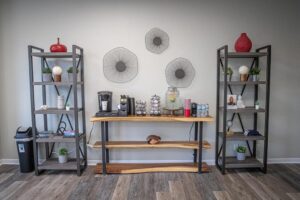
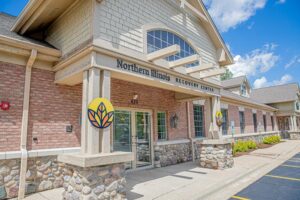
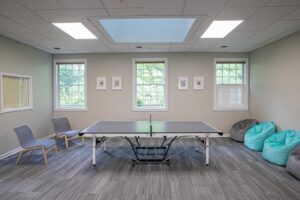
Outpatient Campus
Northern Illinois Recovery Center offers a wide range of treatment options in our state-of-the-art and unique facility.
![]() 16 Bedrooms
16 Bedrooms
![]() Only 41 miles from O’Hare Airport
Only 41 miles from O’Hare Airport
![]() Luxury Amenities
Luxury Amenities
![]() See more images
See more images
Recovery Awaits At Northern Illinois Recovery


